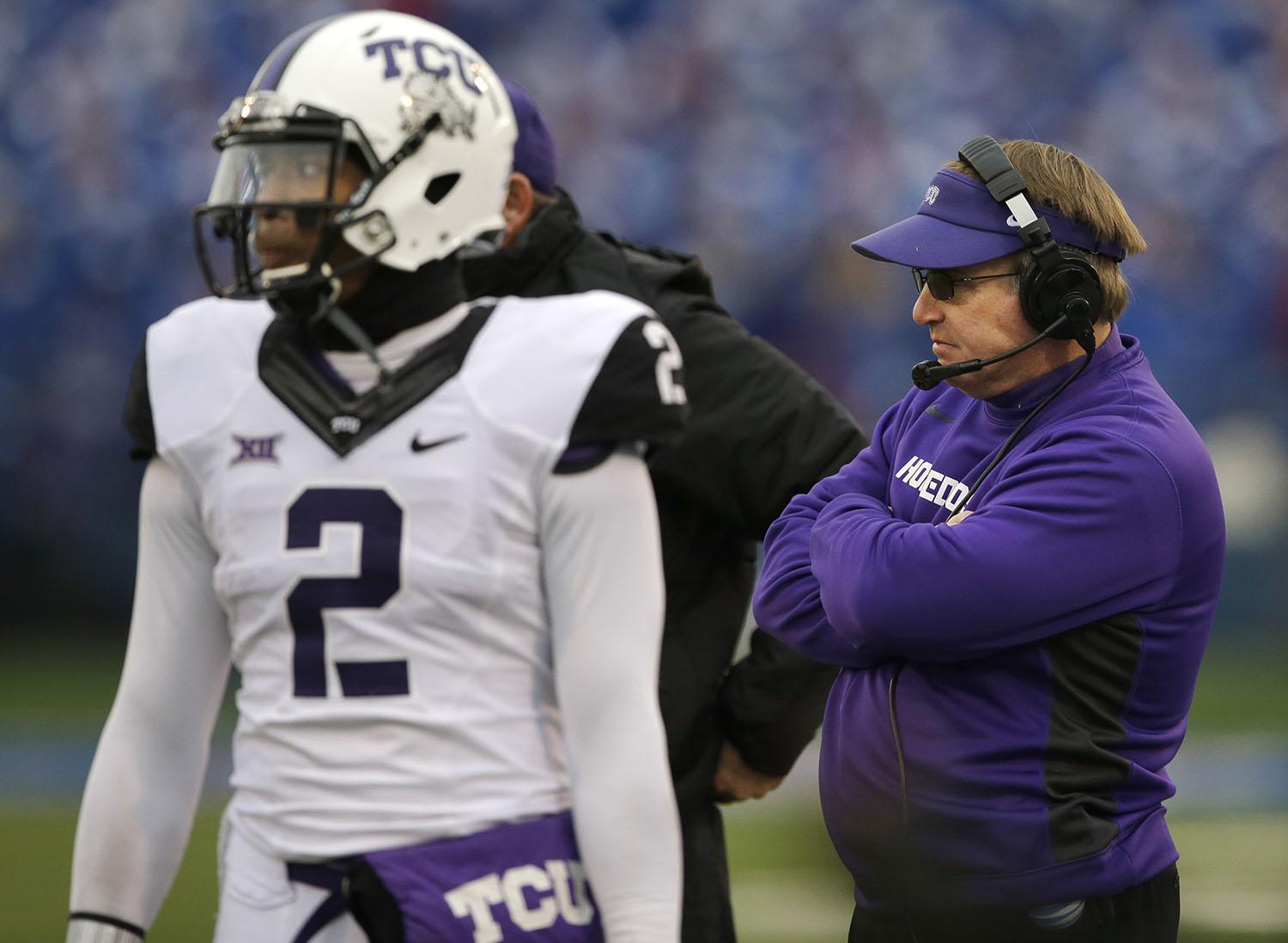
This first official College Football Playoff rankings of the 2019 season were released Tuesday night, but some coaches across the nation don’t support the system — including Gary Patterson.
Created in 2014, the playoff was formed to increase the validity of the national championship, putting the four best teams in college football, decided by a 13-member committee, against each other.
ESPN released an article that gave the opinions of 62 NCAA coaches on the playoff.
One of the questions asked, “Do you understand how the teams are chosen?” The question alluded to “style points,” which refer to things like margin of victory and, simply, how good your wins look.
Several coaches, including Ohio State head coach Ryan Day, felt that they understood the process and supported the concept of “style points.”
On the other hand, Patterson is against the idea.

“No it doesn’t,” Patterson said on if a style point should matter. “You’re supposed to pick the best four teams, period, not how it looked on any given Saturday.”
However, in light of the fact that “style points” are generally considered by the committee, Patterson argued for an expansion of the playoff. He was one of 30 coaches surveyed for ESPN’s article who called for an expanded pool.
“If you’re going to go on ‘style’ points, I think you need to go to eight teams because I think you’re going to leave someone out,” Patterson said.
In the inaugural year of the playoff, Patterson’s team fell victim to the concept of choosing teams who had more “style points” than others. On the final Saturday of the 2014 season, the third-ranked Horned Frogs pounded Iowa State 55-3, but No. 5 Ohio State who had just won the Big 10, were picked to go to the playoff over the Frogs.
“Here’s what I think style points sometimes means—t-shirts,” Patterson said. “To be honest with you, I think that had something to do with us not getting in there in ’14. They didn’t want it to be the first playoff and for TCU to be the team that doesn’t sell as many t-shirts.”
Patterson harped on the fact that TCU dropped from third to sixth after winning 55-3. His case isn’t helped by the fact that Ohio State went on to win the CFP National Championship over Oregon that year, 42-20.
Patterson’s logic does ring true, though. Earlier this year, Forbes Magazine released a list of the top 25 “most valuable” college football teams based on revenue generated. Ohio State was ranked No. 5 on the list, per Darren Rovell at the Action Network, but TCU was nowhere to be seen.
Patterson said that TCU was unfairly ranked because Ohio State is the more popular team. Though the committee said that a conference title game, which didn’t exist in the Big 12 at that time, would have put TCU over the edge, Patterson said that should not have mattered.
“I beat Oklahoma. I beat Texas,” Patterson said. “Why is it that I had to have one more ball game to show I had a good football team?”
While Patterson said that he is no longer upset about TCU’s playoff snub, he clearly has problems with the way the committee is currently run. This won’t matter for the Frogs this year, as they stand at 4-4, but Patterson’s influence as one of the nation’s most recognizable coaches could lead to change in the future.
TCU returns to action at 11 a.m. Saturday against No. 11 Baylor at Amon G. Carter Stadium.






